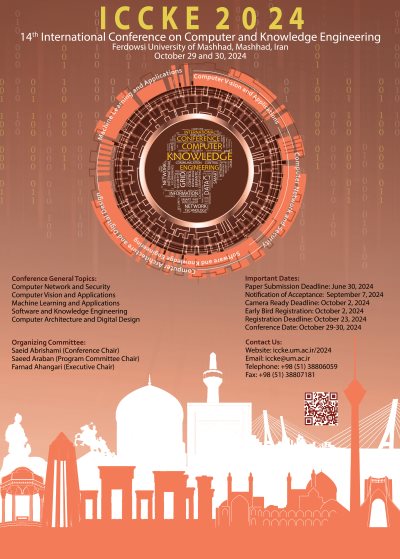0% Complete

Authors :
Keywords :
Abstract :
List of archived papers
Siavash Zaravashan - Sadegh ArefiZadeh - Sajjad Torabi
Samad Azimi Abriz - Majid Meghdadi
Mohammad Mahdi HajiAbadi - Manoochehr Nahvi
Sobhan Siamak - Eghbal Mansoori
Shanker J Gambhire - Malligunta Kiran Kumar - Hossein Shahinzadeh - Mohammad-hossein Fayaz-dastgerdi - B. Srikanth Goud - Ch.Naga sai Kalyan
Narjes Heidari - Javid Norouzi - Mohammad Sadegh Helfroush - Habibollah Danyal
Elham Mahmoudabadi - Esmaeil Mollaahmadi
Negin Mashayekhi - Mohammad Reza Reshadinezhad - Shekoofeh Moghimi
Sadegh Sulaimany Sulaimany - Yasin Amini




